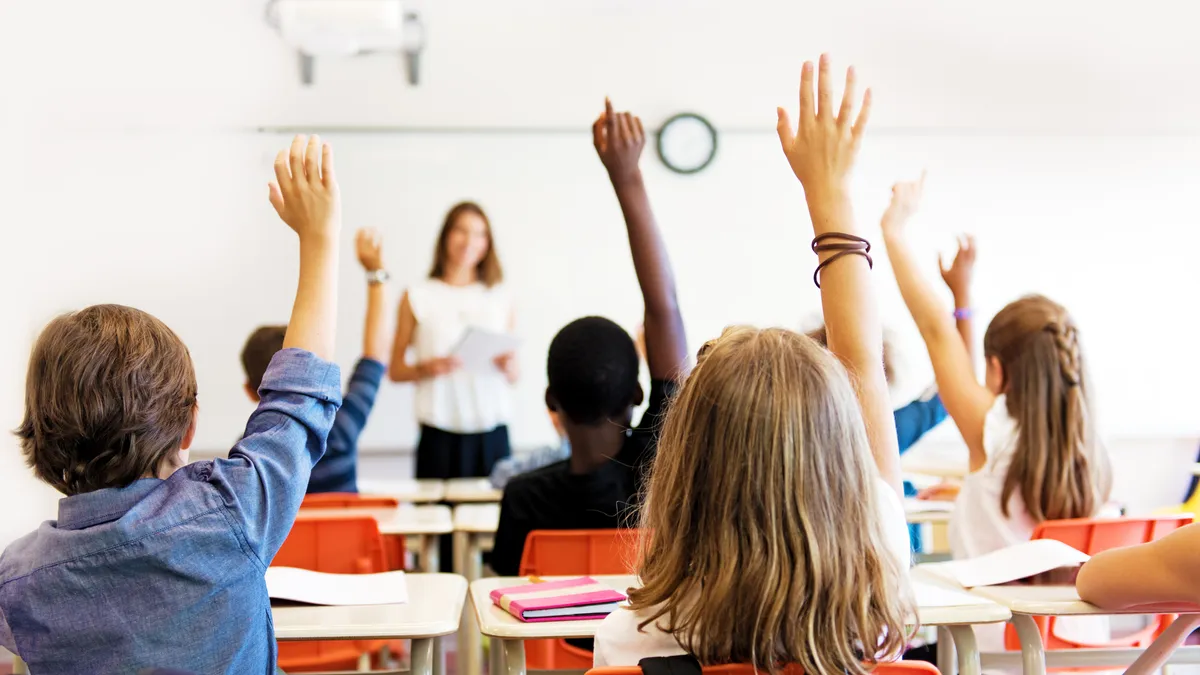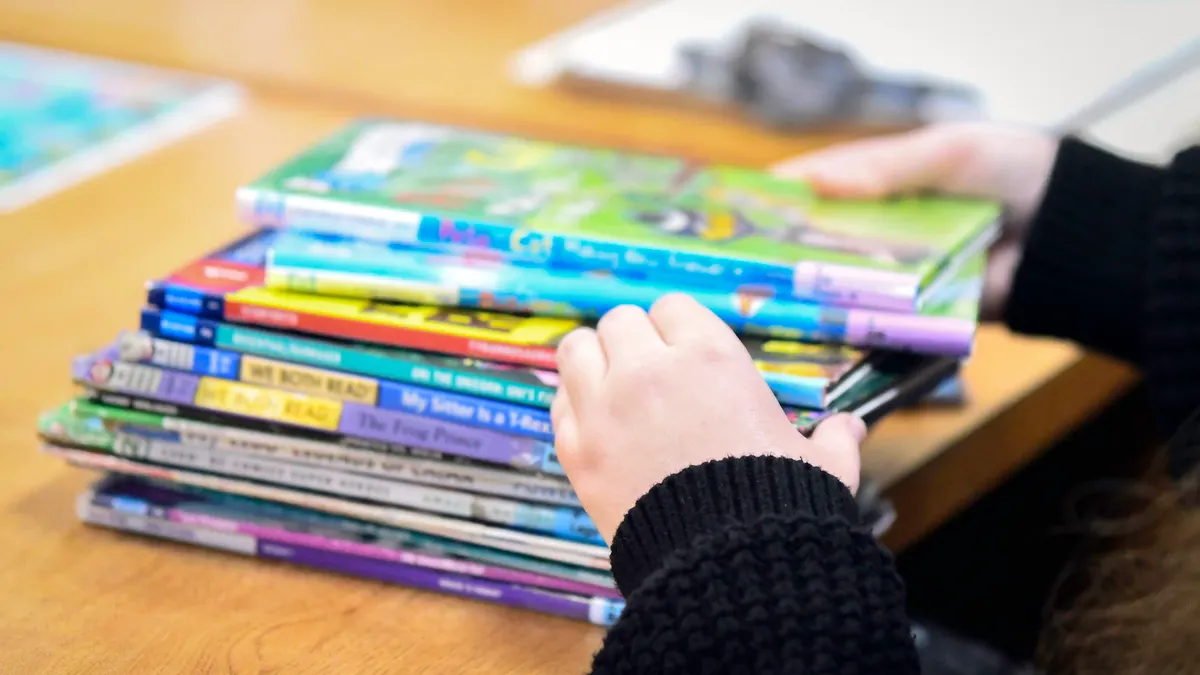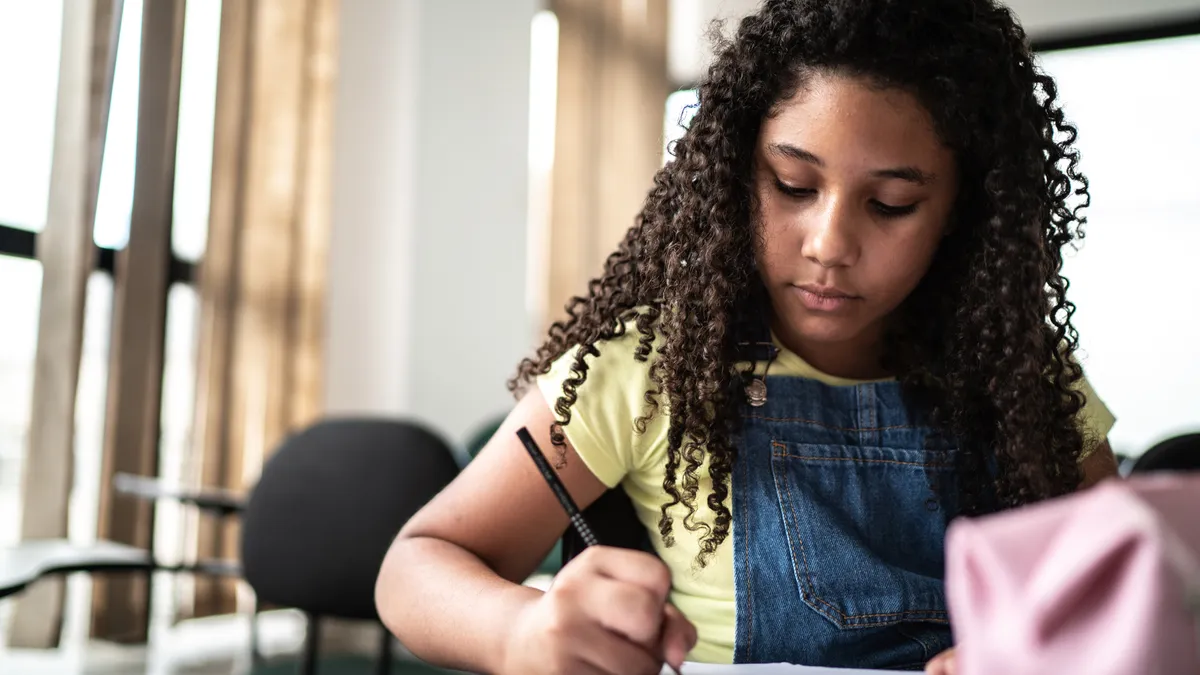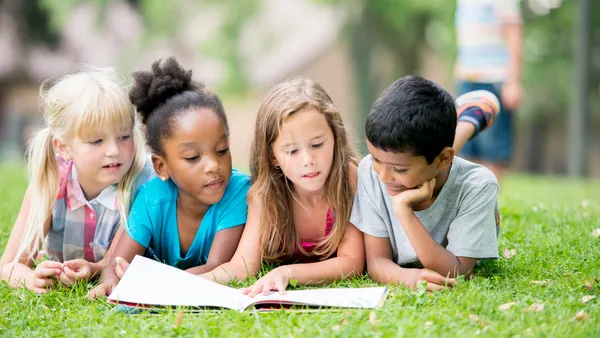Former high school English teacher Roxanna Elden’s favorite part of the school year was her two-week comedy writing mini-unit. Introduced during the school term when standardized testing pressure was at its worst, she found students treated the lessons as a treat.
Even so, Elden wove writing pointers into the assignments, which tasked students with drafting five-minute comedy sets they would eventually perform for each other.
Elden, author of “See Me After Class: Advice for Teachers by Teachers,” asked students to think strategically about the word choices they made to land their jokes. Most importantly, she knew she had a captive audience and could sandwich some academic know-how into the two-week curriculum because of its timing at the end of the year.
“A bad standup show is better than a class in May,” she said.
Laughter can help to create a “positive” learning environment for students and play a role in reducing stress, stimulating the release of neurotransmitters like dopamine and serotonin to deliver a boost in positivity.
Telling a few jokes among classmates and even the teacher, for instance, can help add levity before an exam.
But the elements of humor can do much more than bring a smile to a stressed scholar: The paradigms that make comedy work can also feed strategies that can boost academic work and life skills development.
From knowing how to structure a humorous narrative to developing confidence in a public speaking voice, some educators are serving up silliness along with skill-building to deliver both laughter and learning.
Infusing confidence in writing with comedy
Elden, who today works with teachers as an educational consultant, developed her comedy lessons after taking standup classes to improve her speaking skills. She adapted what she learned, hoping to help students improve their writing skills and infuse some self-assurance.
To make sure students didn’t feel intimidated, Elden told her classes they wouldn’t be graded on whether they got a laugh from their sets. She instead encouraged them to try.
“Comedy is the scariest form of public speaking, because people listen politely to most types of speaking — but with comedy, you have a goal to get a non-polite laugh,” she said. “It builds confidence.”
Students had to write either a five-minute standup set or perform five written jokes. They then worked collaboratively to edit their jokes and revise the writing by also studying other standup routines. Elden would also point out some basic comedic tricks, like infusing comedic writing with inherently funny sounds, such as words that end with a “K.”
“In a way, good comedy writing is good writing,” Elden said. “One of the things that will prevent you from getting a laugh is if the thing you’re saying is not clear. If people are confused, they will never laugh. And if you’re describing a scene, you have to pick the right details, use imagery, tell things in the right order, and end on the right word.”
Growing comfortable making mistakes
Sara Given, orchestra director at Heritage Middle School in Hilliard, Ohio, said comedy can transform a learning experience for the better.
A former comedy writer in college, Given said laughter can turn her classrooms into a welcoming, happy space where her students may be more inclined to take risks and have “a good time while they’re making art.”
“I think it’s useful to show them it’s okay to make mistakes,” said Given, who also serves as conductor for the Columbus Symphony Junior Strings. “We frame it in a way that if [mistakes] happen, it’s not the end of the world. We can laugh it off, keep going and use it as a moment to learn.”
Comedy is laced through much of Given’s curriculum. The class shares daily memes related to orchestra content, and Given has drafted comedy routines that classes perform before a concert, including a recent Broadway-themed one.
But she’s careful that students are mindful of where they are when they’re telling jokes, such as in a public setting, so the humor is shared and not directed at someone’s expense.
Her goal is to use humor to handle moments that could generate stress or worry and to dissipate feelings of self-consciousness. Given believes comedy helps students move through particularly awkward moments, such as when they’re learning how to master their music skills and even as they find their playing style.
“It’s that saying, ‘We’re going to make bad sounds before we make good sounds,’” she said. “It’s part of the learning process so we can move on. And I think it’s freeing for them.”
Building bonds, reducing stress
At Porter Ridge High School in North Carolina, theater teacher Todd Ford builds improv into his curriculum to help students get to know each other and grow more comfortable together. Ford, who also runs the school’s improv club, sees the opportunity to laugh and break loose as helpful to building student confidence and relieving some of the strain he knows students feel.
“It’s an opportunity to have some fun and vent a little bit,” he said. “Because being a kid now can be super stressful.”
Like Elden, Ford stitches some skill-building into light-hearted moments. He believes improv can help people learn how to problem-solve quickly and strengthen interpersonal skills. He said that if improv teams can’t connect and communicate with each other effectively, for example, a comedic moment can fall apart.
Comedy can also help build boundaries, Ford said, so students intuitively know how far they can take their humor depending on their audience.
But the key lesson he hopes his students learn is to laugh in more difficult moments. Steering his students into a life of comedy is not his goal. Rather, he hopes that students will see humor as a vehicle to share perhaps uncomfortable and personal details about their lives — those their peers may be experiencing, too.
Then, when pupils hear a comedy routine that allows them to laugh about those details, it can help them feel less alone, less of an outsider, and more a member of a community.
“I feel it gives them a chance to reflect on the fact that certain things that are more serious in their lives are OK to laugh at, because everyone goes through it,” Ford said. “They can find the humor in the common events between people.”






 Dive Awards
Dive Awards














